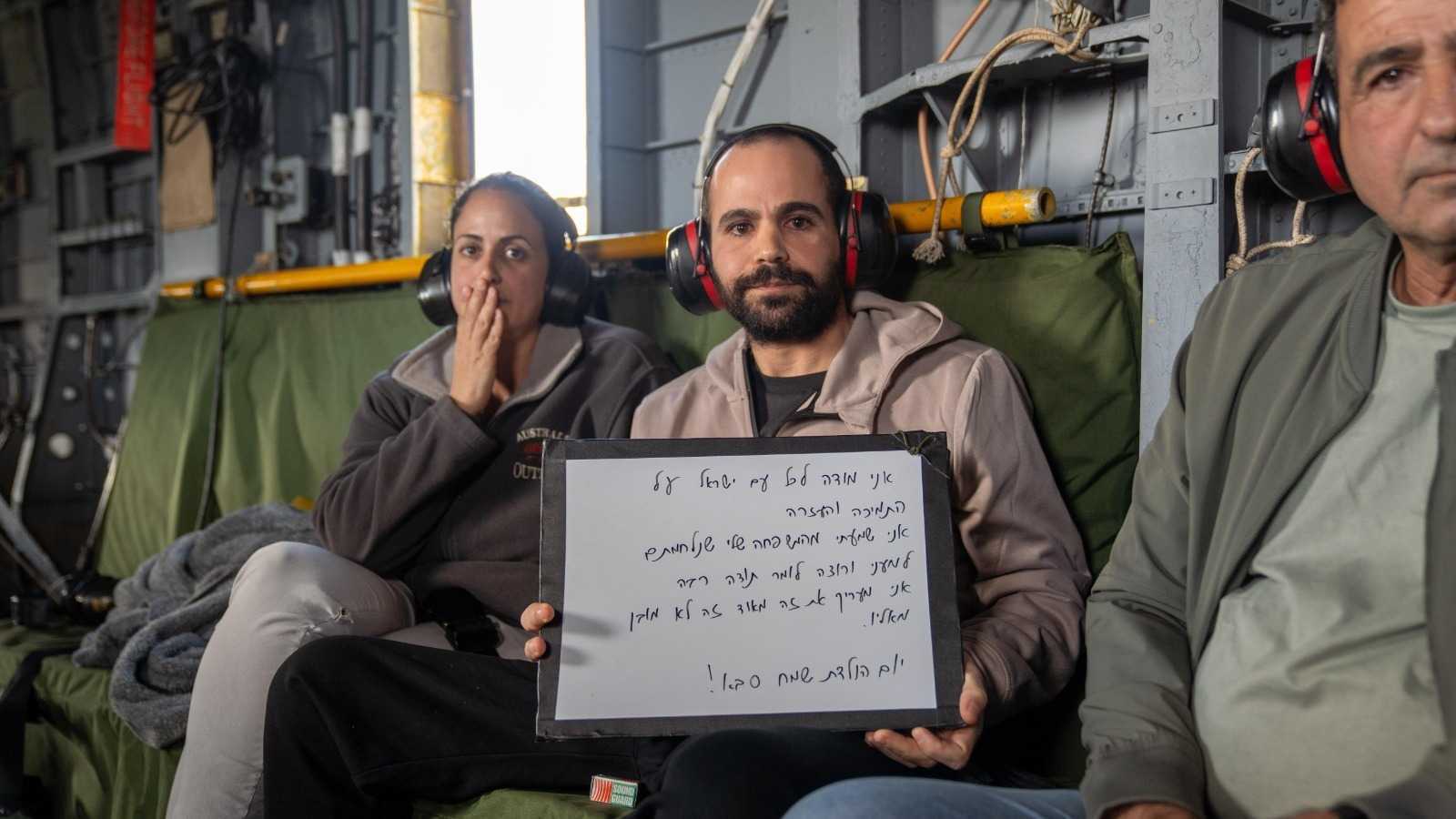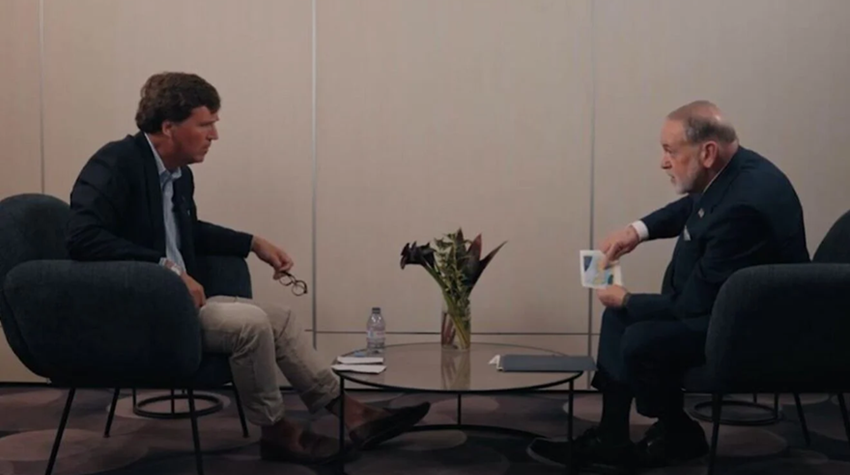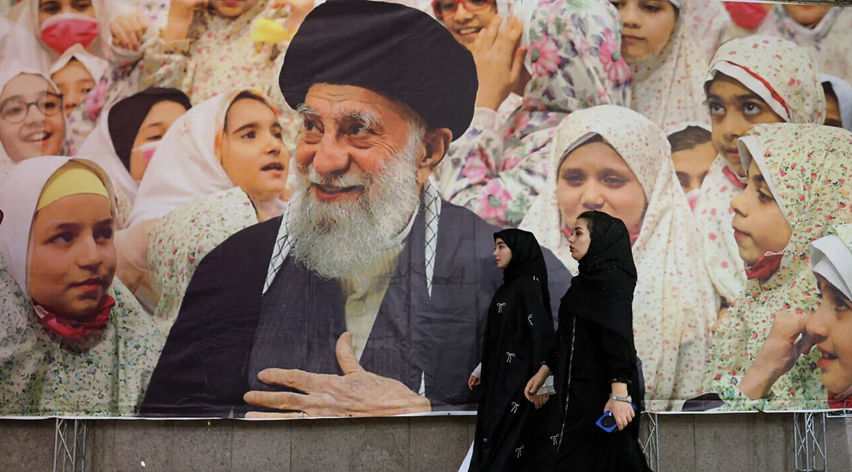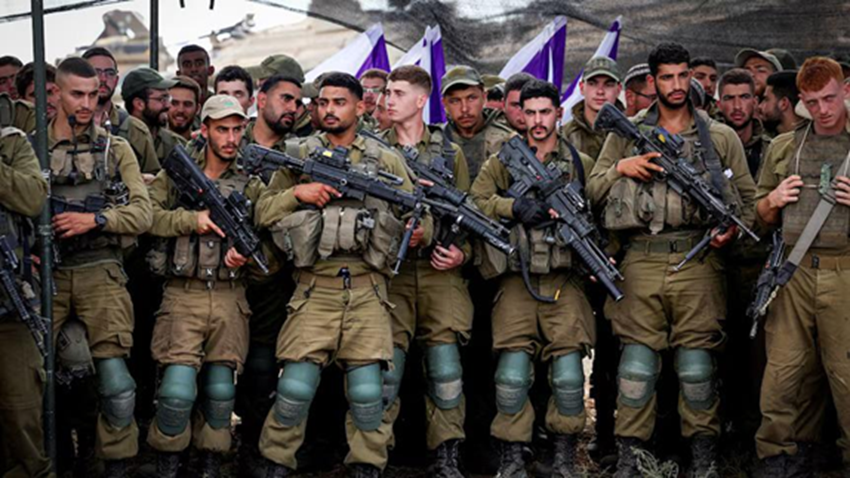Credit: Yarden Bibas, flanked by his sister and father, is seen on an IDF helicopter on his way to a hospital in central Israel on February 1, 2025 (Israel Defense Force)
Released hostage Yarden Bibas was taunted by his Hamas captors about the fate of his wife and children during his nearly 16 months in captivity, Hebrew media outlets reported Saturday upon his return to Israel on the 14th day of the ceasefire-hostage deal.
Bibas, 35, was released by Hamas on Saturday morning along with Ofer Calderon, 54, in a handover in southern Gaza’s Khan Younis. American-Israeli hostage Keith Siegel, 65, was released almost two hours later at the Gaza City port.
Bibas was wounded and abducted from Kibbutz Nir Oz during the October 7, 2023, Hamas invasion and massacre in southern Israel.
His wife Shiri and their two sons were taken separately. At the time, Kfir was 10 months old and Ariel was 4.
Hours after their abduction, a video circulated of Shiri, holding both boys in her arms, a look of terror on her face as she was surrounded by terrorists. The footage became a symbol of the cruelty of the Hamas-led onslaught.
Hamas claimed last year that Shiri and the two children had been killed in captivity, and while Israel has not confirmed the claim, it has expressed “grave concern” for their fate and last week reportedly demanded that the terror group clarify their condition, to no avail.
Upon Bibas’s return to Israel on Saturday, the Kan public broadcaster reported that he had been subjected to grave psychological abuse throughout his captivity, including an incident in which he was compelled to film a video after his captors told him that his wife and young children had been killed in an IDF airstrike.
The Hamas operatives would talk to him incessantly about his family, Kan reported, adding that he was now “clinging to hope” about their fate.
Freed hostage Nili Margalit, who spent nearly 50 days in Hamas captivity, revealed in December 2023 that she was with Bibas when Hamas terrorists told him his wife and two young children had been killed and ordered him to film a video in which he accused Prime Minister Benjamin Netanyahu of refusing to return their bodies to Israel. It was branded a “propaganda video” by the IDF, and was not published by Israeli media.
Bibas spent the early days of his captivity held alongside Calderon, and learned Arabic. Over the course of the 484 days he spent in captivity, he was transferred from place to place in Khan Younis, moving between homes and tunnels, the report said.
Both men were subjected to physical and mental abuse, the report said. They were beaten by terrorists, and held in cages. They have said, however, that they watched coverage of the campaign in Israel for the release of the hostages, and were able to draw strength and hope from it.
Following Bibas’s release, his cousin Oriah told Channel 12 that he had lost weight, and that his family hoped to one day see him smile again.
Calderon, a dual French-Israeli national, was treated by his captors like an IDF reserve soldier, Kan reported. This treatment was evident upon Calderon’s release, as he appeared dressed in military-style clothing, similar to the outfits worn by the five female IDF soldiers released in recent days.
Calderon was abducted from Kibbutz Nir Oz along with two of his four children, Erez and Sahar, who were later released during a week-long truce in November 2023.
Upon Calderon’s release, his mother Kochi told Channel 12 that he looked “more or less okay,” even if “a little thin and pale.”
Kan said that Calderon had asked the IDF soldiers accompanying him back to Israel for a beer, but was advised not to do so until his health improved.
While Bibas and Calderon were held in southern Gaza, American-Israeli citizen Siegel was held in Gaza City along with other hostages, Kan reported.
He was mostly moved from house to house, but spent some time in the terror group’s underground tunnel network, the report said. His captors kept him out of sight by locking him in a room. He spent many months in captivity uncertain as to whether his son Shai had survived the Hamas attack on Kibbutz Kfar Aza. Eventually, however, he heard him speaking on the radio.
According to the report, Siegel has said that food was extremely scarce. His captors would occasionally give him meat, which he ate despite being a vegetarian, as he knew he needed it to survive.
The report said that he was last given food some 24 hours before his release.
The families of the freed hostages have recounted that their loved ones were frequently told they were “going home tomorrow,” and that their captors would give them food and then take it away again while laughing at them.
The constant taunting meant that when the hostages were finally informed that they were going to be released as part of the ceasefire deal, they didn’t believe their captors were telling the truth up until the last minute, Channel 12 reported.
Similar testimony was said to have been shared by the five Thai hostages released on Thursday outside of the framework of the ceasefire deal. They also asserted that their captors would give them false hope by telling them from time to time that their release was imminent.
Some of the freed hostages were subject to heavy violence, Channel 12 said, and were handcuffed for long periods. Some were put into cages for “opposing the terrorists,” and others were held in humid tunnels with little air for long periods.
The news outlet also reported on Saturday that one of the female hostages released earlier in the ongoing ceasefire-hostage deal had assessed that Hamas did not seem to have been badly hurt by the war with Israel.
The freed hostage said that she and the other captives were transferred smoothly from house to house; there was only one mess-up when she saw another hostage in the street. All in all, she said she had the sense that Hamas was being run professionally.
So far, 13 Israelis have been released as part of the ceasefire-hostage release deal, which mandates the release of 33 so-called “humanitarian hostages” during its first 42-day phase.
As those hostages are gradually released, Israel is to release some 1,904 Palestinian security prisoners, including more than 100 serving life sentences for deadly terror attacks. Ninety security prisoners were to be freed Saturday, nine of them believed to be terrorists serving life terms.
The three-phase deal’s later stages are subject to negotiations with the stated goal of reaching a “sustainable calm” in the enclave, alongside the release of the remaining hostages held in Gaza, the release of more Palestinian security prisoners and an Israeli withdrawal from the Strip.
The second stage of the three-part deal is supposed to result in the release of all remaining living hostages not included in the first stage — mainly men of fighting age — but the sides must still hash out the number and identities of Palestinian prisoners to be let go as part of the deal.
The talks on the next stage are slated to begin no later than February 3, or 16 days after the deal went into effect. Netanyahu and US President Donald Trump are scheduled to meet in the White House on February 4.
The freed hostages are among 251 Israelis and foreigners kidnapped on October 7, 2023, when some 3,000 Hamas-led terrorists burst into Israel, killing some 1,200 people, amid rampant acts of brutality and overt targeting of civilians.
Source: The Times of Israel


































